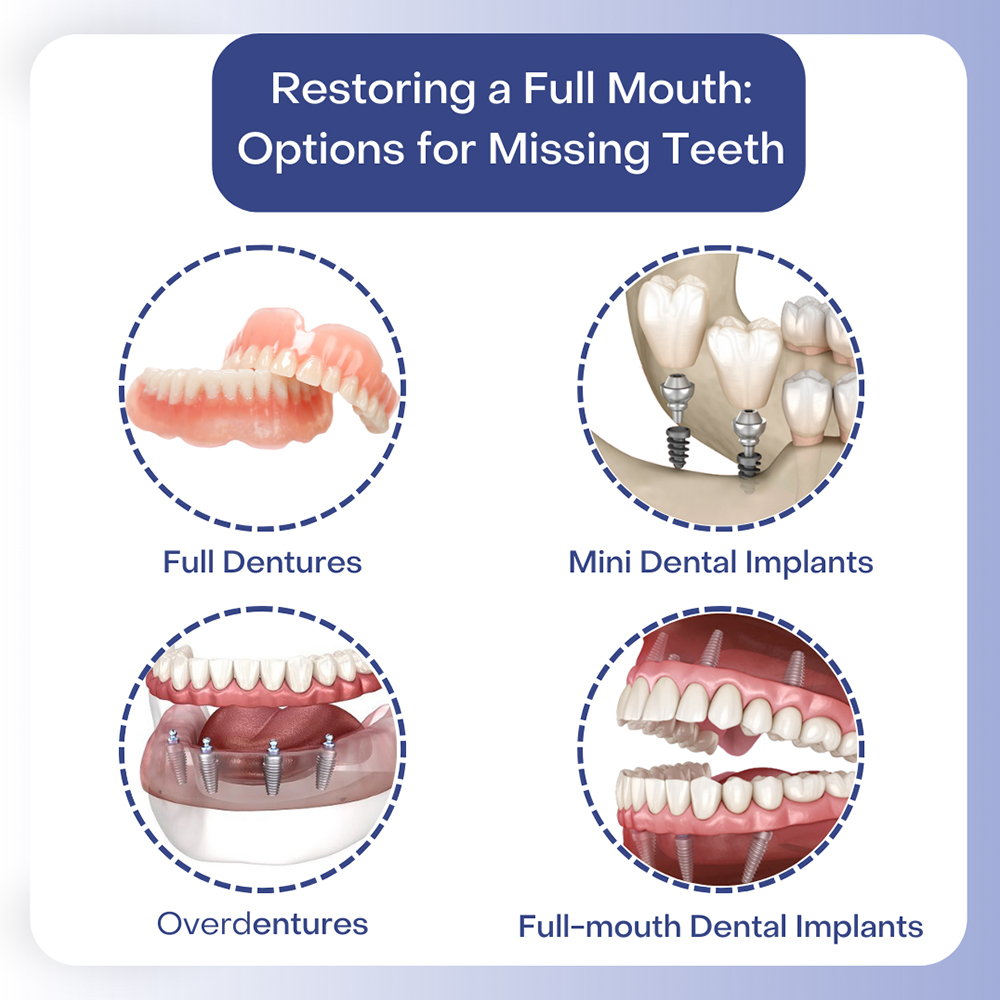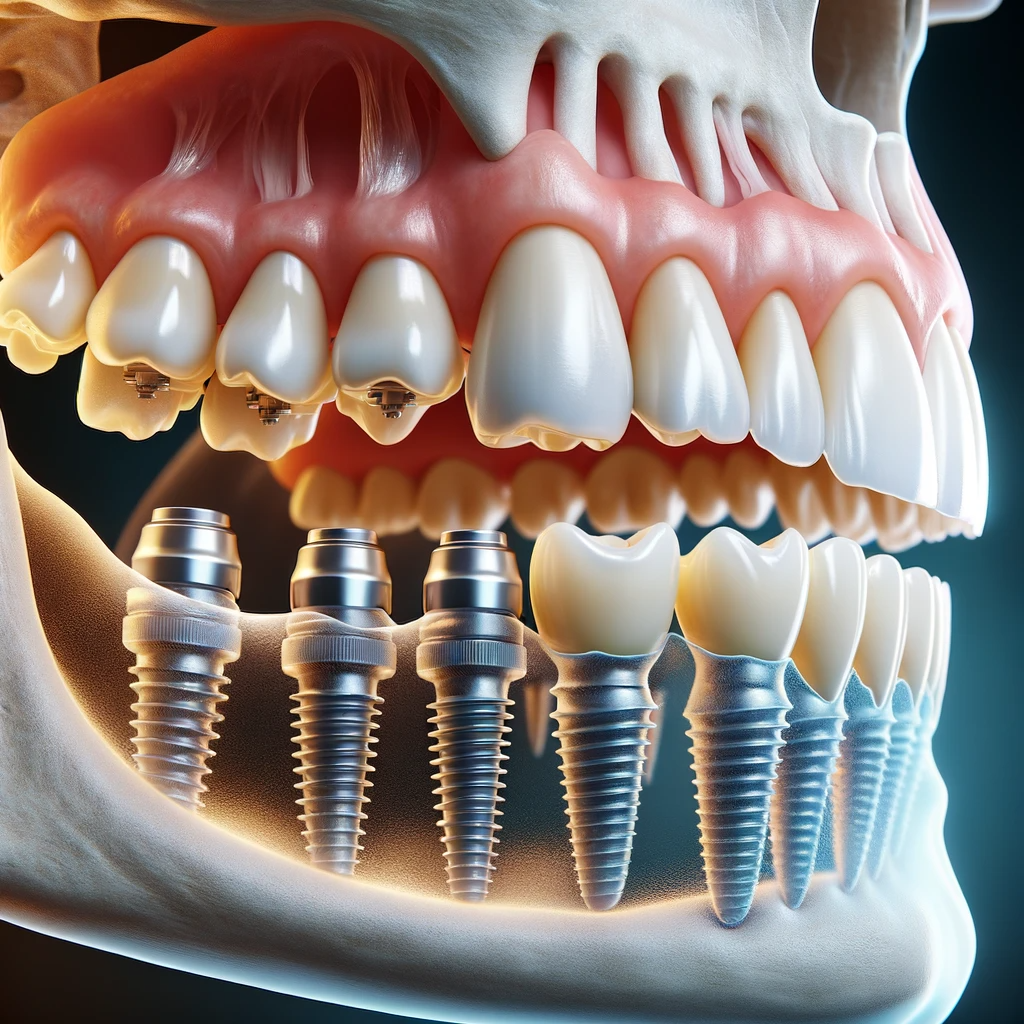Some Known Questions About Dental Sense.
Some Known Questions About Dental Sense.
Blog Article
About Dental Sense
Table of ContentsAn Unbiased View of Dental SenseGet This Report on Dental SenseGet This Report on Dental SenseOur Dental Sense Ideas
are medical gadgets surgically implanted into the jaw to recover an individual's capacity to chew or their appearance. They offer support for man-made (phony) teeth, such as crowns, bridges, or dentures. When a tooth is lost as a result of injury or illness, an individual can experience difficulties such as quick bone loss, malfunctioning speech, or adjustments to chewing patterns that cause discomfort.Dental implant systems consist of a dental implant body and dental implant joint and might also consist of a joint fixation screw. Wisdom tooth cavity. The dental implant body is surgically put in the jawbone instead of the tooth's root. The dental implant abutment is generally connected to the implant body by the joint fixation screw and expands with gums right into the mouth to support the attached synthetic teeth
(https://www.intensedebate.com/people/dentalsense1)Framework of The Oral Implant System picking oral implants, speak to your oral service provider regarding the prospective benefits and risks, and whether you are a prospect for the treatment. Points to take into consideration: Your general health is a vital factor in figuring out whether you are an excellent prospect for dental implants, for how long it will certainly take to heal, and how long the dental implant might remain in place.
Smoking cigarettes may influence the recovery procedure and lower the long-term success of the dental implant. The healing procedure for the dental implant body may take several months or longer, throughout which time you commonly have a short-lived abutment in place of the tooth. the oral implant treatment: Very carefully comply with the oral hygiene guidelines offered to you by your dental company.
Things about Dental Sense
Implant failing can lead to the need for an additional surgery to take care of or replace the dental implant system. Restores the capability to eat Recovers aesthetic look Assists maintain the jawbone from shrinking as a result of bone loss Preserves the wellness of the surrounding bone and periodontals Aids keep nearby (neighboring) teeth stable Boosts high quality of life Damage to bordering all-natural teeth throughout implant placement Injury to the surrounding cells during surgery, such as sinus perforation Injury during surgical procedure (for example, crack of bordering jawbone) Poor function, such as seeming like the teeth do not bite together usually A sensation that the tooth hangs or turning in position resulting from an abutment screw loosening up Implant body failing (looseness of the implant body) due to systemic infection, which may be more probable in patients with uncontrolled diabetes mellitus due to regional infection in bone and gum tissues supporting the implant body because of postponed recovery, which might be more probable in people that smoke Difficulty cleaning up the periodontals around the implant, leading to bad dental hygiene Unattended gum condition Post-surgical pins and needles because of nerve impingement or damages Constantly notify wellness treatment carriers and imaging service technicians that you have dental implants prior to any magnetic resonance imaging (MRI) or x-ray treatments.
FDA is not familiar with any kind of damaging occasions reported for MRI or x-ray treatments with dental implants. Dental implants systems are commonly constructed from materials that follow worldwide consensus requirements of the International Company for Standardization (ISO) or ASTM International. These standards have details of what makes a risk-free product.

A dental implant is a framework that replaces a missing out on tooth. With screw-like tools, the surgeon inserts an implant into the jawbone, and it acts as an anchor for an artificial tooth, called a crown. A gadget called a joint links the artificial tooth to the oral implant. The crown is customized to fit the person's mouth and match the shade of their teeth.
The Greatest Guide To Dental Sense
Some individuals are not qualified for oral implant surgery. It is for dental specialists to run on people with: severe illnessuncontrollable metabolic diseasebone or soft tissue condition or infectionIf these issues are fixed, an individual can have the surgical treatment. In, dental surgeons abstain from operating individuals with: If individuals with any of the above undergo oral implant surgical treatment, there is a higher danger of the implant stopping working.

Oral implant surgical procedure is a tailored procedure. It's not the same for everyone. However the following gives a basic overview of what you can anticipate your dental expert, dental cosmetic surgeon, periodontist or prosthodontist to do: Place the dental implant surgically. Provide you time to recover. Connect the blog post and final crown, bridge or denture.
Next, your specialist will very carefully put the dental implant right into your jaw. Your doctor will certainly rearrange your gum tissues and shut the laceration with stitches. If your implant is near the front of your mouth, your dental expert will make a short-term tooth for you to use up until you recover. By doing this, you will not have a gap in your smile while you recover.
Not known Incorrect Statements About Dental Sense
During the recovery stage, your jawbone must fuse to the oral implant. This procedure can take anywhere from 3 to 9 months.
Once your implant heals, your dentist can connect the joint (small port post) and your last restoration (crown, bridge or denture). This generally takes about one hour to complete and might need a second minor surgical procedure. You shouldn't really feel any discomfort throughout your dental implant treatment because your supplier will utilize drug to numb your gum tissues.
Report this page